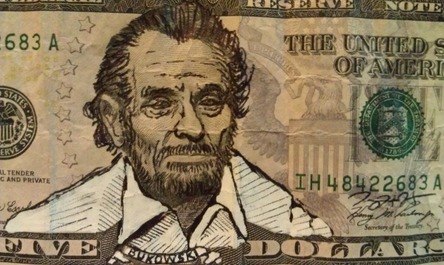Comments
-
Do you cling to life? What's the point in living if you eventually die?
If we need a reason to live, we might as well need a reason to die. I'm neutral on this issue, really. Is it always better to live than to sleep? I don't think so. If life becomes sufficiently unpleasant (think chronic or terminal disease that threatens the personality itself), then it seems "rational" to end it. But hope springs eternal for most of us. We're curious. We live people. They love us. Might as well play the game for another day. If we are one of the lucky ones, we want another day and will face great temporary suffering for the stretch of time that follows. One thing I'm sure of is that many people live without any "metaphysical" reason or justification for slogging around in this beautiful/terrible absurdity. "Nihilism" or whatever nice name you want for it is perhaps more common than you suspect. I wouldn't be surprised if some of the happier people in your orbit are discretely "nihilists." Just listen to the popular comedians. Maybe it's even the "secret truth" of our lifestyle these days. That's why we laugh with real pleasure at Louis C. K. -
Features of the philosophical
What if philosophy is both a response to anxiety and terror and a noble, phallic enterprise? What if it's a brave pose in the face of terror? The philosopher "braves" the "void" beyond the platitudes. To be fair, I think of the philosopher largely as a personality type. I usually imagine an atheist, a contrarian. This is the irreligious philosopher or anti-theologian who is nevertheless a theologian of the critical mind itself as "God." -
Features of the philosophical
Hi. For what it's worth, I largely agree with you. We share a bias or taste, let's say. The philosopher (as I conceive him) moves in a larger space, behind or above more respectable disciplines. Those disciplines are perhaps more respectable exactly because they limit themselves. Working within a fixed framework of which statements deserve being taken seriously obviously has advantages. But working in the void outside all given frameworks (debating and creating them) is incomparable.
I like that you mention envy. Maybe you exaggerate or oversimplify a little, but I think you are shrewd to stress the personal element. A person goes to school and has to decide which fork in the road to take. It's a question of value and virtue. Who shall I become? That's seems like a central philosophical question. Am I an "objective" man? Is philosophy about the "higher" objectivity or is it essentially creative? (For what it's worth, I think it lives on the line. It's the sort of thinking that makes the subjective/objective distinction problematic.) -
What does this philosophical woody allen movie clip mean? (german idealism)
Hi. I've seen that film twice. In my view, that's a parody of philosophy. You may remember the subtitles in that brilliant scene in Annie Hall. Underneath the pretentious gab lurks sex. Old Woody is a fascinating character. I think he has something like a Schopenhauerian vision of the world. Sex and vanity.
0af

Start FollowingSend a Message
- Other sites we like
- Social media
- Terms of Service
- Sign In
- Created with PlushForums
- © 2024 The Philosophy Forum